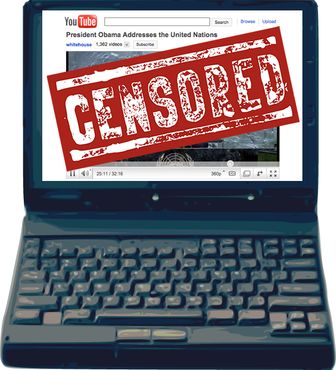Beware the 'Internet Blacklist' bill

If the definition of a lame duck Congress is: “a body of lawmakers proactively approving the most paradigm-changing, corporate-friendly legislation the nation has ever experienced,” then we most certainly have a lame duck Congress.
While the internet has been abuzz about the recent cloture vote on S. 510, a frightening “food safety bill” which supposes the government has the right to regulate all food from seed to stomach (more on this bill next week), a Senate committee quietly passed S. 3804, the Combating Online Infringement and Counterfeits Act (COICA). This proposed law threatens to end the free internet as we know it.
Unanimously approved by the Senate Judiciary Committee on Thursday, COICA has received the support of major media companies and the Justice Department. Under the measure, the attorney general has the power to blacklist any website. I described the machinations of the bill in an earlier article, but David Segal and Aaron Swartz of the Huffington Post have boiled it down to its principles:
“COICA creates two blacklists of Internet domain names. Courts could add sites to the first list; the Attorney General would have control over the second. Internet service providers and others (everyone from Comcast to PayPal to Google AdSense) would be required to block any domains on the first list. They would also receive immunity (and presumably the good favor of the government) if they block domains on the second list. The lists are for sites 'dedicated to infringing activity,' but that's defined very broadly -- any domain name where counterfeit goods or copyrighted material are 'central to the activity of the Internet site' could be blocked.”
The legislation is needed to combat piracy and protect intellectual property rights say proponents.
“The bill gives the Justice Department an expedited process for cracking down on websites engaged in piracy or the sale of counterfeit goods including having courts issue shutdown orders against domains based outside the United States,” according to the Associated Press.
The global reach of COICA was elucidated by Francis Anthony Govia of Activistpost.com when the bill was introduced in September.
“The Justice Department will be granted power to serve court orders upon the registry where the domain name registrar is not located in the United States, and upon receipt of such an order, the domain registry must suspend operations of, and lock, the domain name of the infringing site,” he writes.
First Amendment activists see this bill as the greatest threat to free speech the country has ever faced. It's no secret that Big Media has its hands all over this bill, seeking to, as one blogger puts it, “redirect the flow of free information to media conglomerates.” For many, S. 3804 has a lot more to do with internet censorship than it does copyright infringement.
Will Senator Lieberman get his wish of a government-censored internet after the Chinese model? If you have objections to the internet blacklist bill, the folks at demandprogress.org have generated a petition urging its demise.




